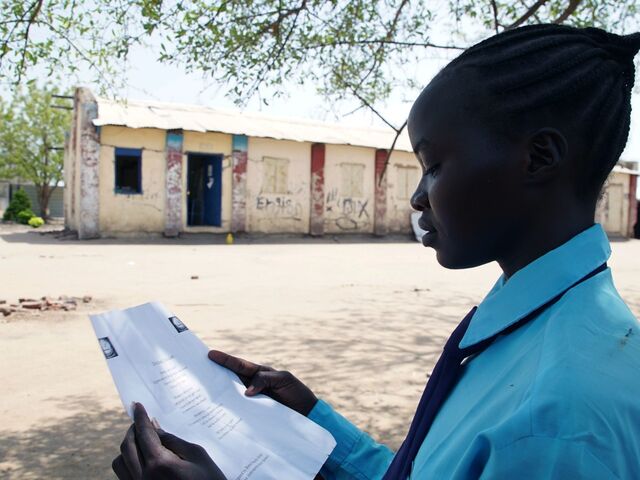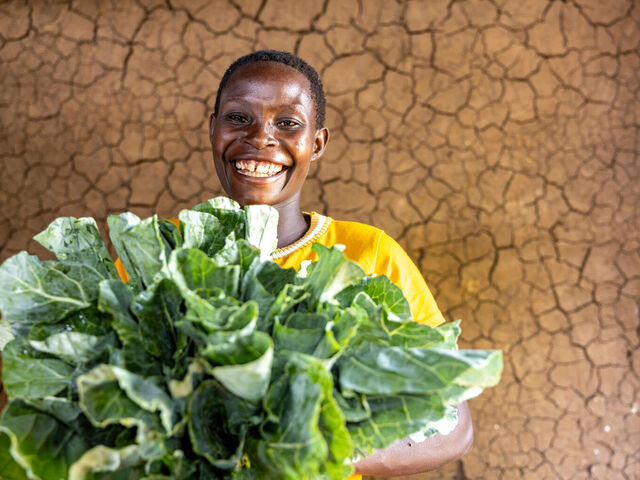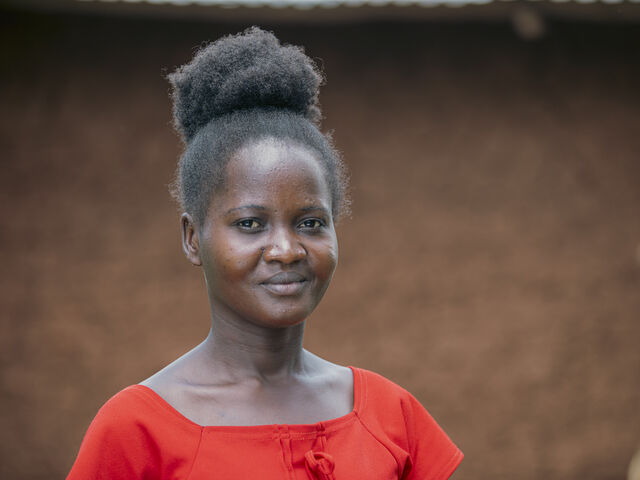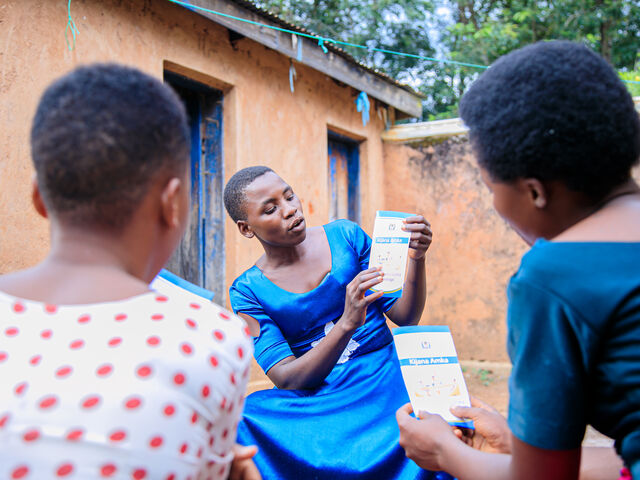From community dialogues led by peer educators to training of health-care workers and strengthening policies and guidelines, Zimbabwe is scaling up the availability and accessibility of integrated, people-centred SRHR services, which brings together SRHR, HIV and GBV services under one roof.
Meet the community champions leading this work.
Princess, Young Mentor Mother
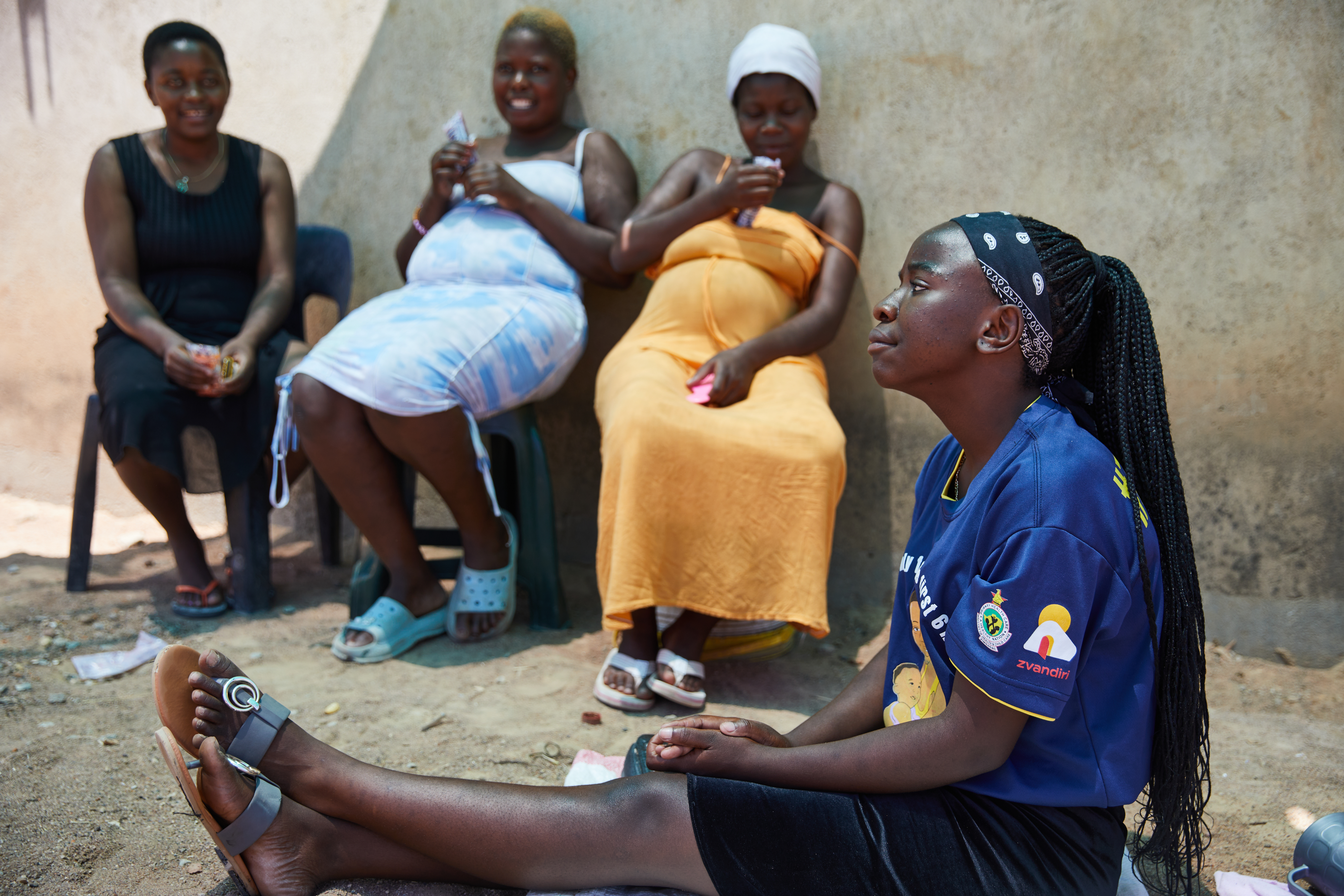
Living with HIV, Princess learned of her status when she was 17 years old. Though initially scared and in denial, she received support to accept her status and adhere to her ART (antiretroviral therapy) medication. Soon after, she became pregnant: “It was a really tough time for me, as I didn’t know that there is a thing called the elimination of mother-to-child transmission.” Seeking support, Princess joined a mentorship group, and her life changed.
“There was a young mother who mentored me and showed me how to prevent mother to child transmission. This actually gave me the power and…esteem to want to become a young mentor mother. Here I am today, a young mentor mother. I monitor other young mothers like me - encouraging them to adhere well to their medications,” she shares.
Through the Young Mentor Mother initiative, individuals like Princess are helping young pregnant and breastfeeding mothers to receive the access to critical services when they need it most, and share the same knowledge, skills and experience she once received.
Junior, Mobile Healthcare Provider
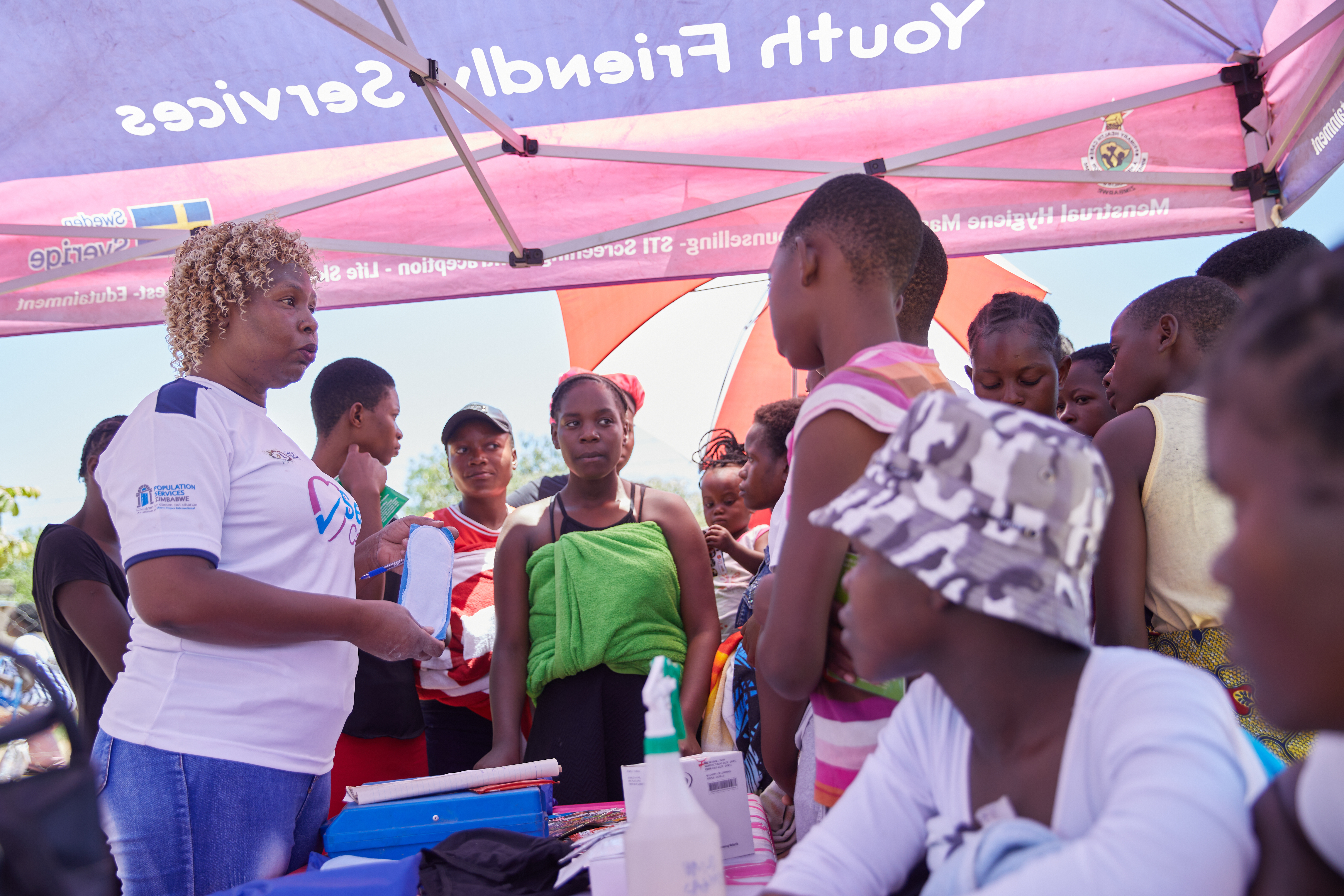
Ensuring access to integrated SRHR, HIV and protection from sexual and gender-based violence services (SGBV) is a priority in Zimbabwe. To help achieve this, mobile health care providers are traveling to rural, isolated areas throughout Zimbabwe to run campaigns and educate communities about available services, care and support.
One such person is Junior, a primary care nurse, who engages with hundreds of adolescent and young people, speaking about adolescent sexual and reproductive health and rights services and information, including how to use reusable sanitary pads and female and male condoms. Junior works within the mobile clinics that offer services including family planning, HIV testing, and counselling and treatment for STIs (sexually-transmitted infections).
“They [young people] come for counselling, then they come for treatment. They are no longer shy. They are also coming for HIV testing and for family planning, so it has helped to reduce the number of unwanted pregnancies [in the area] and even HIV,” she notes.
Bromwell, Community Health Worker
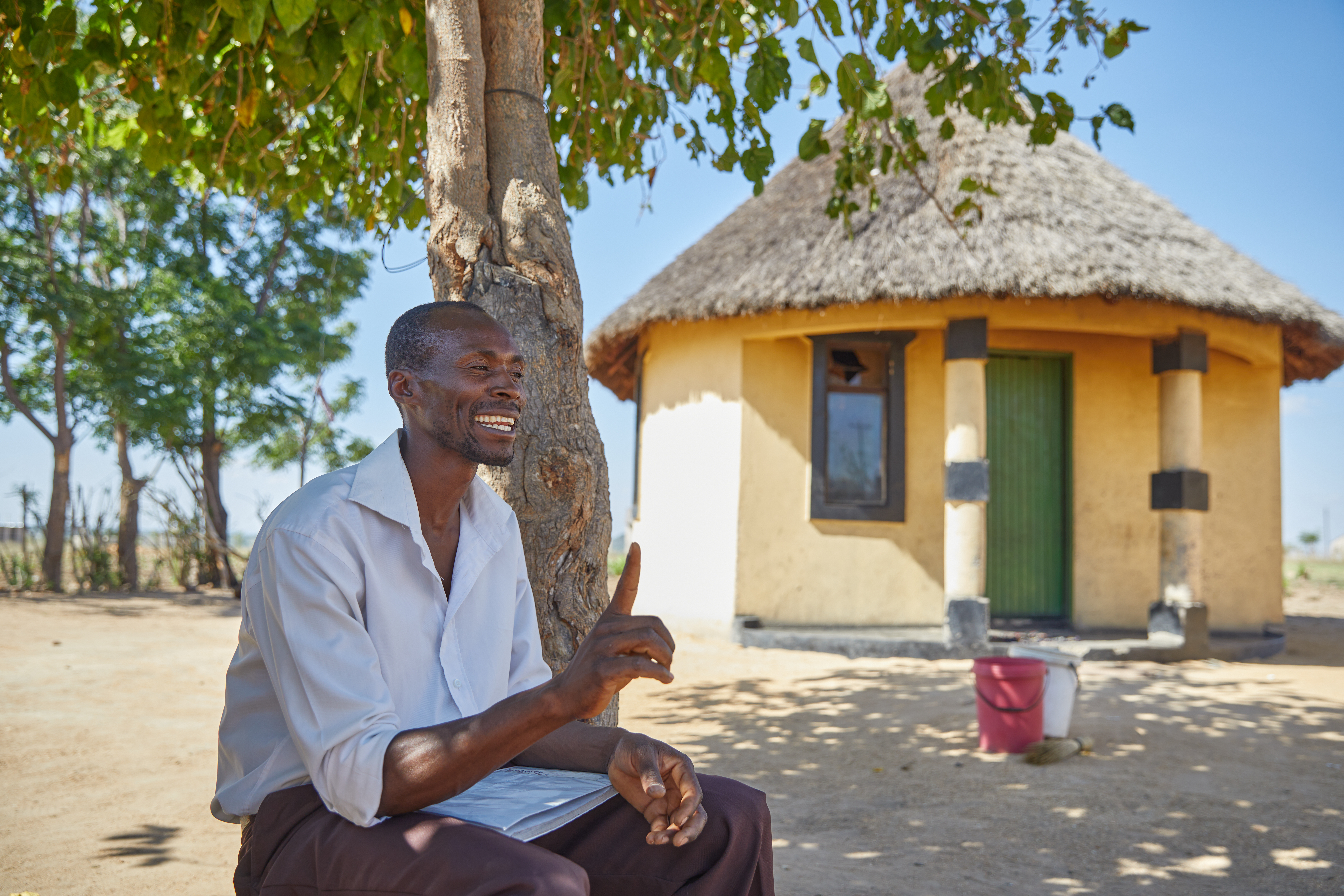
Bromwell works in rural communities and gathers families and individuals at the grass-root level to discuss issues related to teenage pregnancy and child marriage.
“As a member of this community who was born here, it is easier for me to engage with village heads, stakeholders, and other independent bodies and bring people together to discuss the community’s health issues. We are the link between the community and the clinic,” Bromwell highlights.
In addition to running community dialogues, Bromwell refers young people to clinics for treatment, HIV testing and counselling. He credits the the community discussions on the dangers of child marriage as a contributing factor to the declines he has seen in the communities where he works.
Patience, Nurse and Midwife
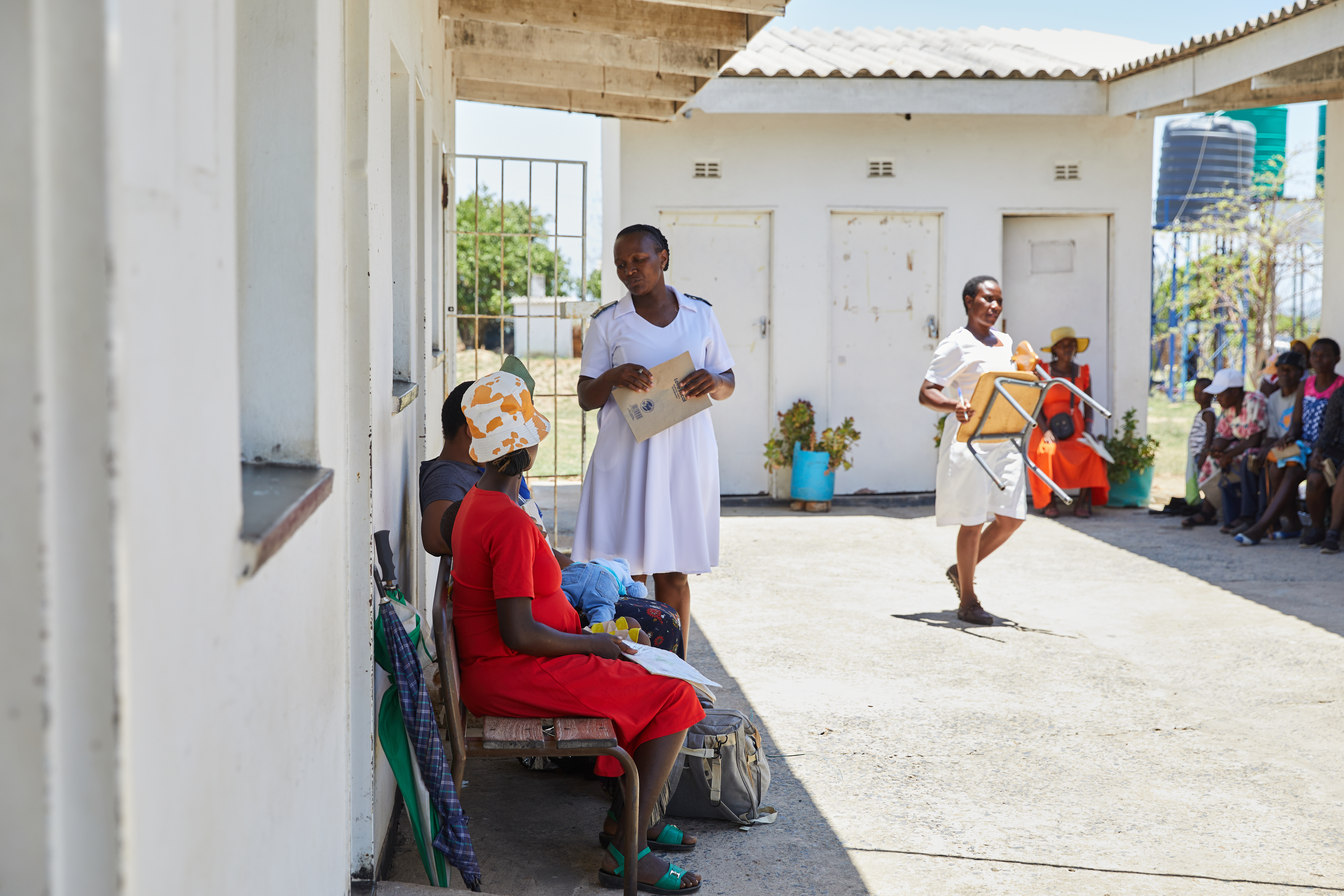
Beyond the mobile clinics, through the support of 2gether 4 SRHR, health clinics throughout the country have started to strengthen the integration of SRHR, HIV and SGBV services. Medical Sister in Charge, Patience, offers these services to young women and adolescent girls: “We teach pregnant mothers about self-care and how to prepare for their upcoming baby, as well as family planning methods and self-care, whether HIV positive or negative.
We also teach them about how to prevent mother-to-child transmission, and proper feeding methods and care for the child.”
In recent years, more than 5,000 health-care workers have received training from the joint UN team in Zimbabwe implementing 2gether 4 SRHR on the delivery of adolescent and youth-friendly services. In addition, a standardized package for HIV and SRHR services was developed for adolescent girls and young women, with districts throughout the country equipped to provide integrated services in one roof.
Following the integration of SRHR, HIV and SGBV, health care providers have seen more women and girls accessing services. Their wait times are less, and there is overall greater satisfaction from the patients and healthcare providers.
Sexual and reproductive health and rights means having control over our bodies, choosing when and if to start a family and being protected from sexually-transmitted infections like HIV, among other key issues. Programs like 2gether 4 SRHR are working to prioritize those rights in East and Southern Africa through the impactful work of individuals like Princess, Junior and Patience.
_______
About: 2gether 4 SRHR is a joint UN regional “Delivering as One” flagship programme funded by Sweden. The programme brings combined efforts of UNAIDS, UNFPA, UNICEF and WHO to ensure all people in Eastern and Southern Africa are empowered and supported to exercise their SRHR.
